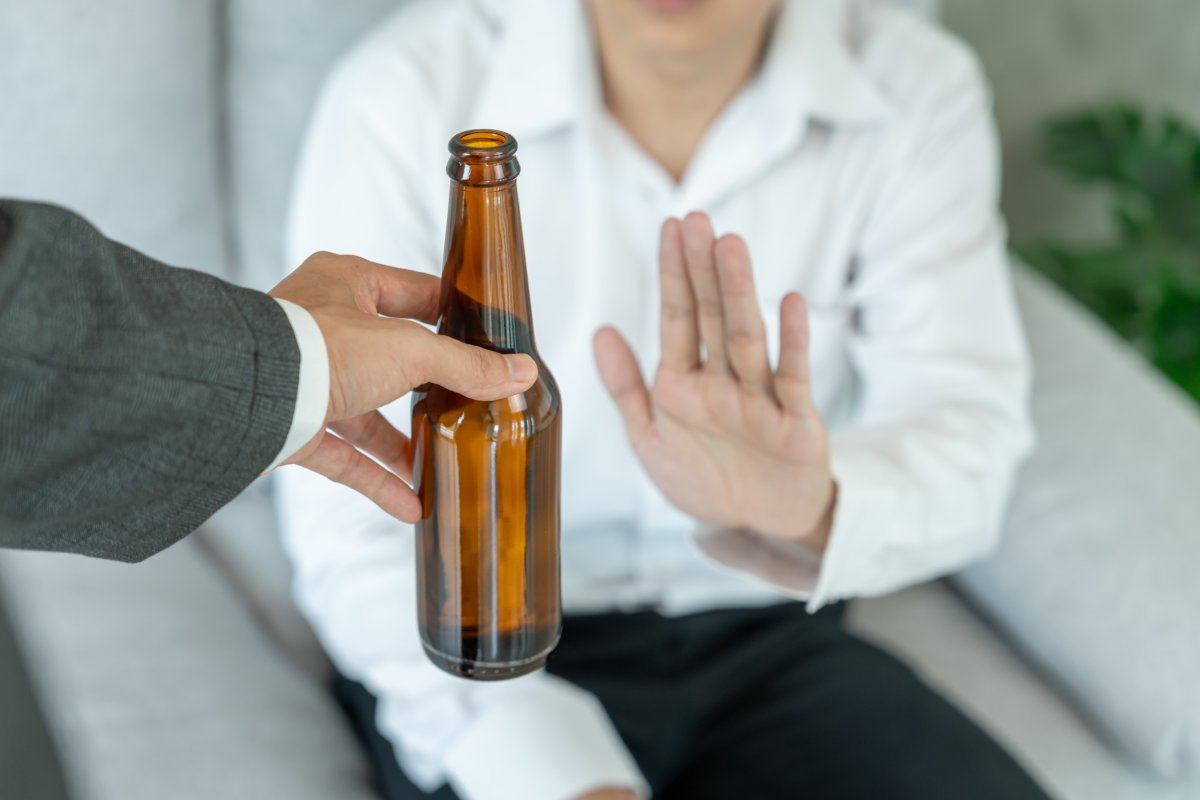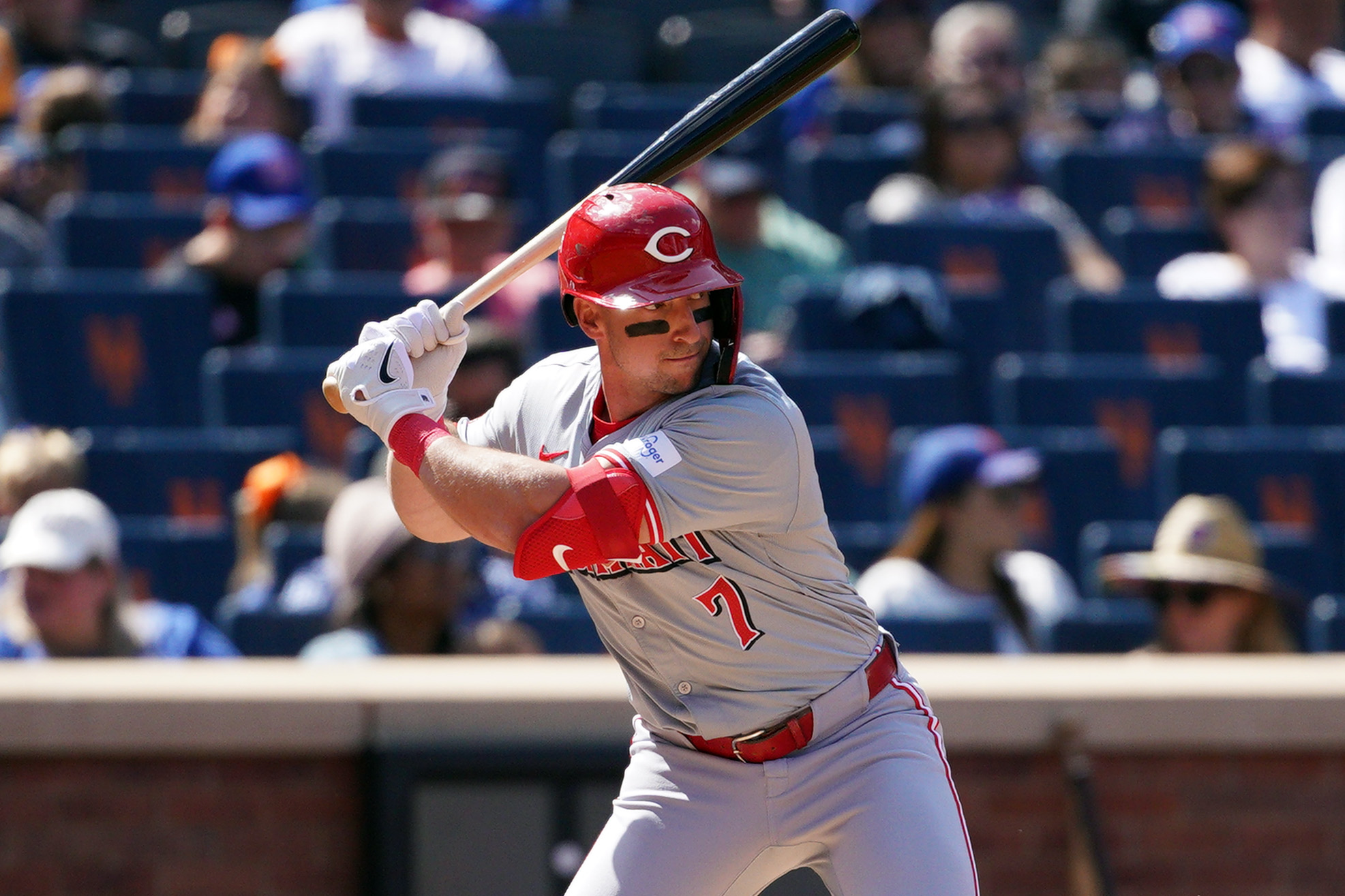Giving up or cutting down on alcohol has long been a classic New Year's resolution, but doing the Dry January challenge—cutting out alcohol for the month of January—has been gaining popularity year on year since it was created in 2013.
Data from Civic Science in February 2024 indicated that 27 percent of U.S. adults aged 21 and over said they were "very likely" to participate in Dry January last year—and 25 percent completed the challenge.
Google Trends also shows that more people have searched for Dry January every year, suggesting that, if the trend continues, 2025 could be the challenge's biggest yet.
Ian Andersen, cofounder of alcohol moderation app Sunnyside, told Newsweek he anticipated more than 75 million U.S. adults taking part in January 2025.
"Even in fairly small quantities, alcohol can have a negative effect on nearly every area of our wellbeing," he said. "It hurts sleep and recovery, causes anxiety and can derail our physical and mental health goals—and of course, it's a leading cause of death across the world."
But many people struggle to give up, said Andersen, because of the stigma, the lack of options and how ingrained alcohol is in our daily lives.
"Dry January provides a low friction, low pressure way for anyone who drinks alcohol to realize the benefits of drinking less while millions of others around them are doing the same," he said.

Dry January was originally created across the pond by charity Alcohol Change U.K., in 2013.
"The Dry January challenge is for anyone who feels like they're drinking a bit too much or too often, or just feels like they could do with a break from alcohol," Dr. Richard Piper, CEO at Alcohol Change U.K., told Newsweek. "Designed by behavior change experts at Alcohol Change U.K., it helps us cut down longer-term by offering the circuit breaker that helps us reset our relationship with alcohol."
Both experts said that participating came with wide-ranging, significant benefits.
"People who take part in the Dry January challenge tell us they are sleeping better, have more energy, are enjoying a bank balance boost, while experiencing lasting improvements in their mood," said Piper.
"Physically, a month off alcohol can lead to lower blood pressure, cholesterol and diabetes risk, as well as lower cancer-related proteins in the blood."
"It also boosts your immune system and gives you more energy, better sleep, brighter skin and stronger hair and nails." Piper added that stopping drinking could also alleviate feelings of stress, low mood and anxiety.
Andersen said that, in an analysis of people who participated in Sunnyside's Dry(ish) January Challenge, the benefits were "incredible," whether people cut alcohol completely or just cut back.
"83 percent experienced fewer binge drinking days, 78 percent gained more control over their drinking, 63 percent improved their sleep, 60 percent improved mental health and more," said Andersen.
In Sunnyside's Dry(ish) Challenge, Andersen said that 92 percent of participants indicated they planned to maintain a lower consumption of alcohol going forward—and Piper cited similar figures.
In Alcohol Change U.K.'s Dry January, Piper said that 13 percent of people decide to stay alcohol free beyond January and 86 percent decide to cut back going forward.
"Being alcohol-free for 31 days shows us that we don't need alcohol to have fun, to relax or to socialize, despite what alcohol companies try to make us believe," said Piper. "It helps us learn the skills we need to manage our drinking in an environment where alcohol is everywhere we look."
However, he added that some people should think carefully before attempting the challenge—specifically, individuals who drink very heavily or regularly.
"People who are clinically alcohol dependent can die if they suddenly, completely stop drinking," said Piper. "If you experience fits, shaking hands, sweating, seeing things that are not real, depression, anxiety or difficulty sleeping after a period of drinking and while sobering up, then you might be clinically alcohol dependent and should not suddenly completely stop drinking." He advised speaking to your doctor for help instead.
Do you have a tip on a food story that Newsweek should be covering? Is there a nutrition concern that's worrying you? Let us know via science@newsweek.com. We can ask experts for advice, and your story could be featured in Newsweek.



















:quality(85):upscale()/2024/04/24/878/n/3019466/36c5693c662965c5d1ce91.72473705_.jpg)
 English (US) ·
English (US) ·